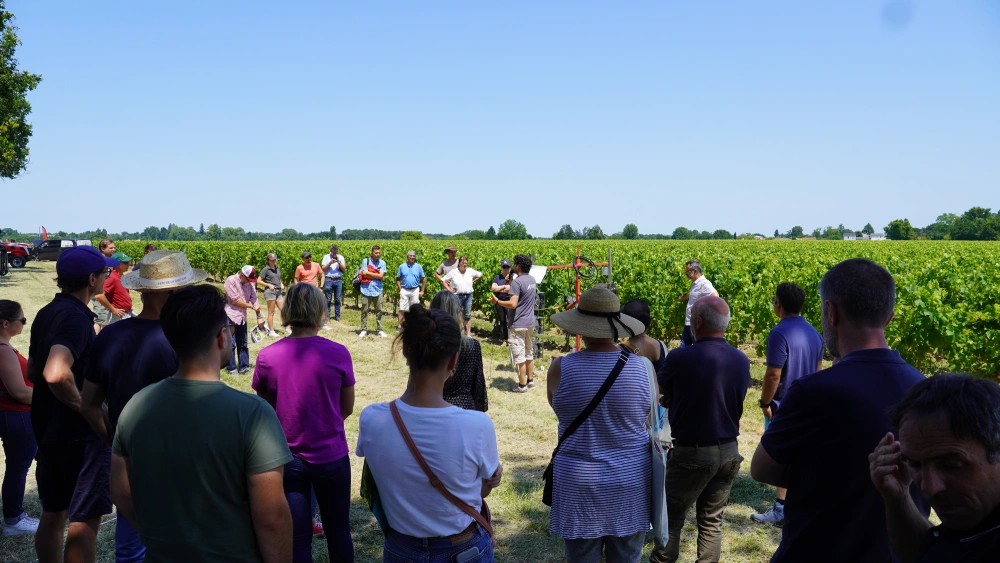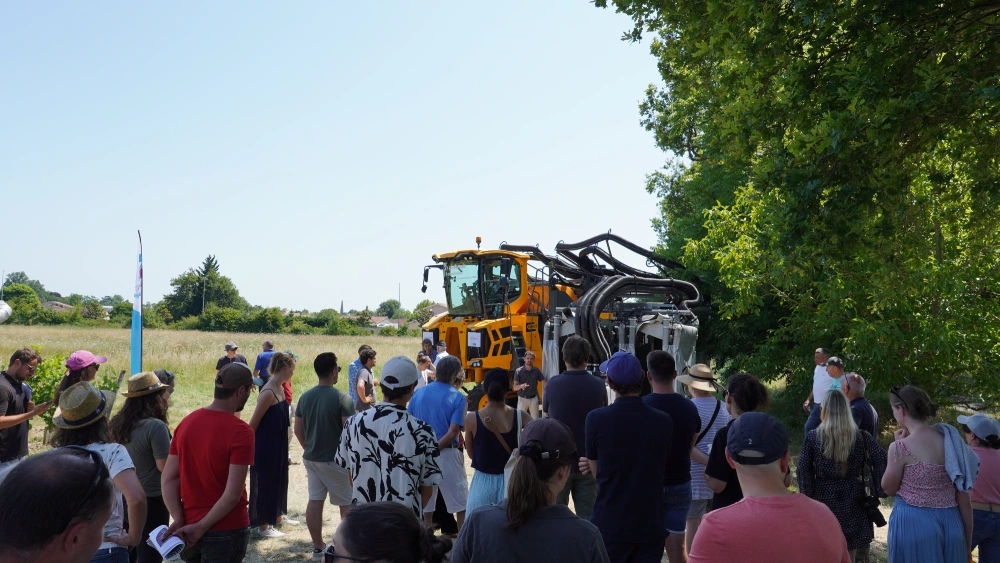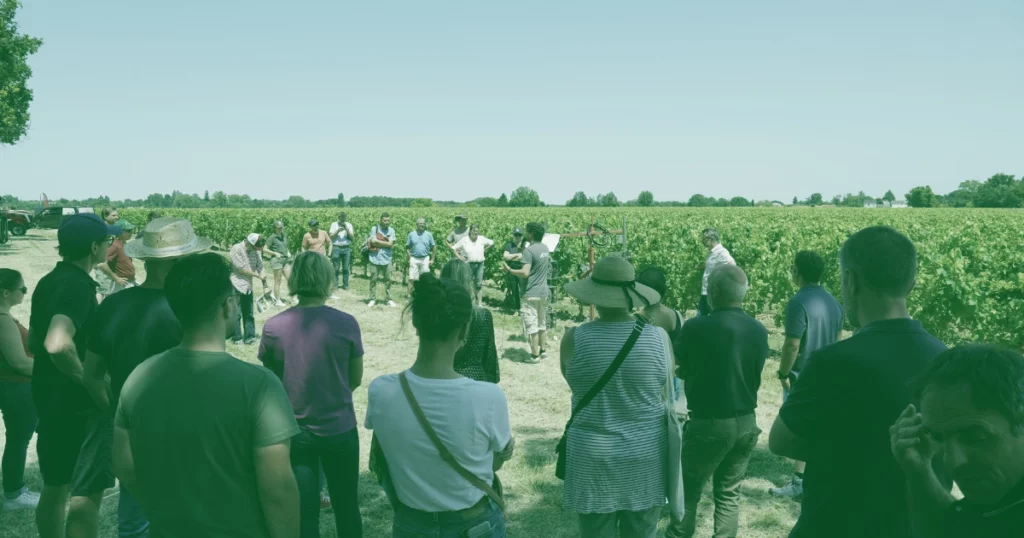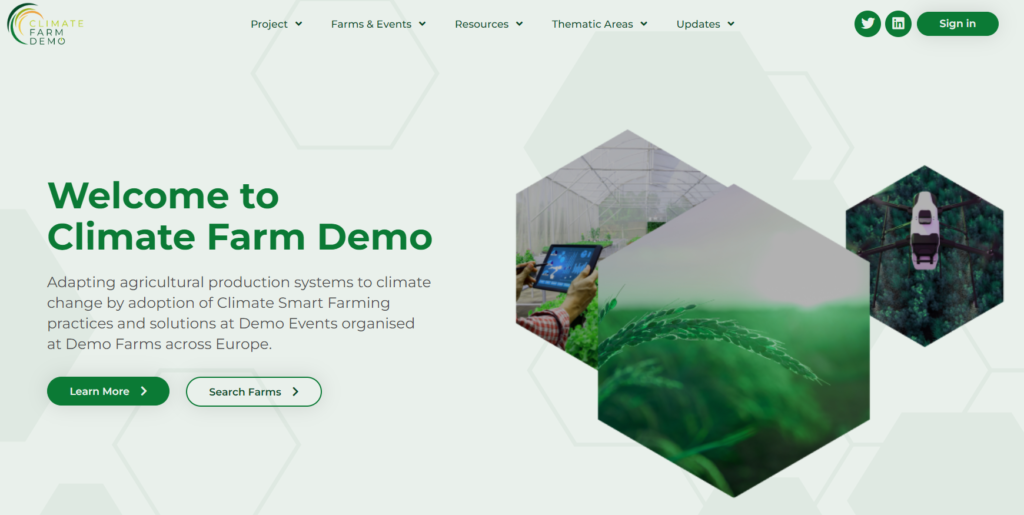The farm is a pilot farm in the EU Climate Farm Demo project, a project promoting the adoption of Climate Smart Farming practices and solutions by farmers.
The main areas this farm focuses on are rewarding mechanisms, water management, soil health and
biodiversity, energy management, and agroforestry.
Through practices such as tillage, pruning, plot management, and sprayer adjustment, the farm is adapting to climate change. Test plots of resistance grape varieties adapted to climate change are also run on the farm, and the farm practices ‘sheep in the vineyards’, with a flock of around a hundred ewes herded by a shepherd in the off-season, which come to tend the vineyard plots throughout the winter, from October to May.
In July, the farm held an annual event on the topic of agroecological transition, which was open to all organic, conventional, and in-conversion wine growers and advisors. The open field day played host to demonstrations and workshops on vineyard spraying. The event was organised by the Gironde Chamber of Agriculture. This French organisation has a mission of representing and defending the interests of the farmer and coordinating agricultural development.
Climate change is a very real concern for winegrowers in the region. Weather events are more contrasted and extreme in recent years, in comparison to previous climatic references. Intense hail ravaged the vineyards in 2022, followed by late frosts in 2023, alongside intense heat waves and forest fires. These unprecedented weather events have caused major disruption to vine-growing practices due to increased fungal pressure, yield losses and vine dieback.
There is an urgent need for innovative solutions to deal with the situation, and to try and contain the cessation of winegrowing activity that has been observed over the last two to three years.
Farmer Emilie Reynier’s motto is “collective intelligence, knowledge transfer and sharing’’. She is in charge of the farms at the Agro Campus Bordeaux Gironde and is a strong advocate of the importance of training the next generation, and of guiding young people along a radically new path.
Emilie believes that due to the changing climate and weather, references need to be updated as previous benchmarks can no longer be applied. “Although younger generations are very aware of climate change, stereotypes need to be broken down to encourage them to be more open to practices inspired by other geographical areas, both in France and elsewhere in Europe. It is crucial to have demonstration sites that go beyond the local scale. We need to work on action and objectify advice.”
As climate change reshapes the wine-growing industry in Bordeaux and beyond, Château Dillon is at the forefront of innovation and adaptation. Under the guidance of farmer Emilie Reynier, the farm is not only a hub of sustainable practices but also a beacon for future generations of winegrowers. Through initiatives like Climate Farm Demo and its focus on collective knowledge sharing, the farm is actively contributing to a more resilient and ecologically sound future for agriculture. With climate-smart solutions, updated benchmarks, and an openness to global inspiration, Château Dillon is helping to ensure that the legacy of winemaking will endure in the face of environmental challenges.




